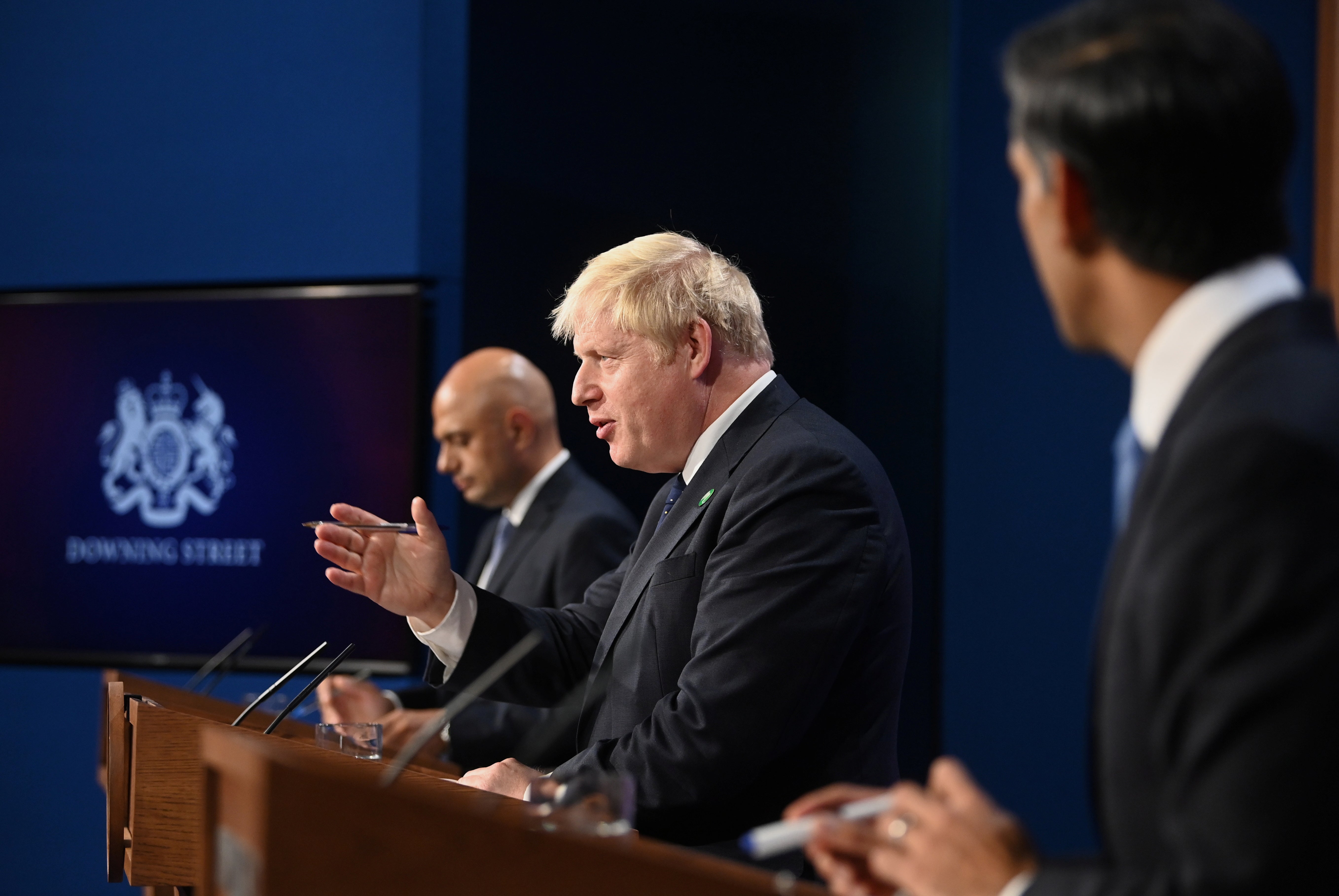What is happening in the opinion polls?
Labour overtook the Conservatives in one poll 10 days ago, but seems to have slipped back. John Rentoul reports


It looked as if the opinion polls might have reached the crossover point 10 days ago when Labour took a two-point lead over the Conservatives in a YouGov poll carried out immediately after the announcement of the tax rise to pay for the NHS backlog and Boris Johnson’s social care plan.
It was the first Labour lead for eight months, since January, when the country was in its third lockdown and when Johnson was thought to have handled coronavirus badly. Then came the vaccines, which lifted Tory support.
Now the vaccine effect is wearing off, and that YouGov poll seemed to be the first indication that Keir Starmer was gaining the upper hand. It was followed by an Opinium poll putting Labour and the Tories neck and neck on 38 per cent.
But since then there have been six polls, including new weekly instalments from both YouGov and Opinium, all putting the Conservatives in the lead. The average Tory lead is four points, which is slightly lower than the average lead of five and a half points from the same companies immediately before the tax rise announcement on 7 September, but it is hard to read much into it.
It may be that the two polls suggesting the crossover was happening were the product of random variation. Or it may be that the tax rise announcement had a short-lived jolting effect on core Tory supporters – it was notable that the Labour lead was accompanied by an unusually high level of support for the Reform Party (previously the Brexit Party), at 5 per cent rather than the usual 2-3 per cent. Either way, it has not yet led to one of those break points in polling history where the pattern of party support sharply changes, such as when the pandemic struck, which resulted in sharp rises in support for governing parties in most countries, including the UK.
On the other hand, the average level of Conservative support in the polls has been declining gently since the end of May, and is now below 40 per cent. So there are other reasons apart from the tax rise for the government’s loss of support. Many Tory MPs say privately that they are more worried about the boats crossing the Channel than they are about putting up people’s taxes. They think the impression given is that the home secretary is powerless.
Some MPs are worried about the rising cost of living, especially at a time when the universal credit uplift is about to end – a cut that will start to be felt among those on benefits and the low paid from the middle of October. These MPs are worried that economic problems could combine with winter pressures on the NHS to create a difficult political environment.
As they enter the party conference season, long-serving Tory MPs are braced for a difficult winter. At least it will stop the dinghies, they say, but they are resigned to Labour taking the lead, which they regard as normal in a government’s mid-term. We may not have reached the crossover point yet, they say, but we will soon.



Join our commenting forum
Join thought-provoking conversations, follow other Independent readers and see their replies
Comments